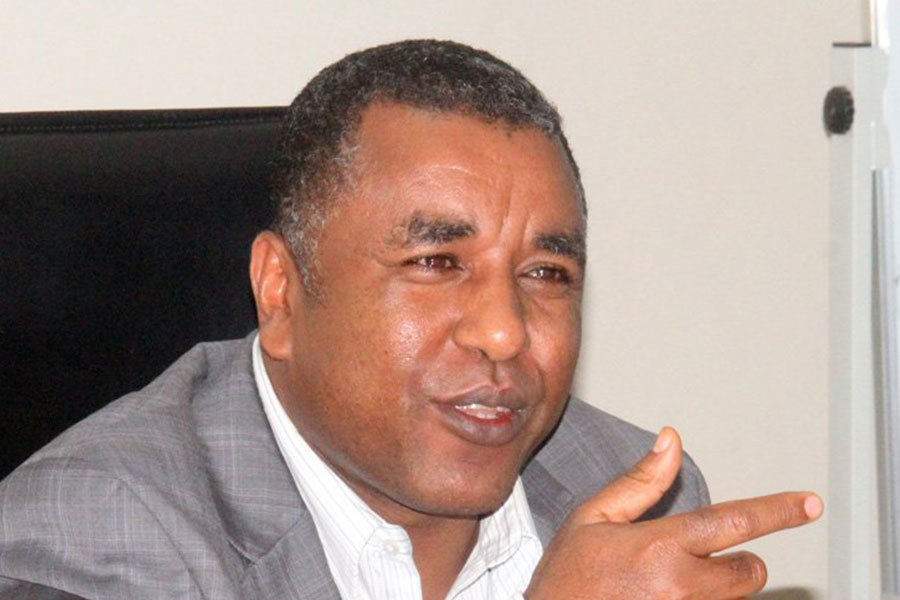
Dec 8 , 2024
By Nana Akufo-Addo
Africa is on the cusp of a profound economic transformation. The population boom in sub-Saharan countries, which is expected to increase the number of Africans from 1.4 billion today to 3.3 billion in 2075, holds the potential to trigger rapid GDP growth and raise living standards across the continent.
My country, Ghana, aims to be at the forefront of these developments. But our ability to capitalise on the demographic dividend hinges on one critical factor: the health of our citizens. We are seeking to form strategic international partnerships that help us improve health outcomes, stimulate economic growth, and deliver broadly shared prosperity.
This raises a fundamental question: What does an equitable strategic partnership between African countries and the Global North look like?
Historically, development aid for vital health projects in the developing world, though well-intentioned, has often been uncoordinated and unsustainable, focusing on short-term crises rather than addressing the systemic problems that cause them. Over the past two decades, African countries have been laying the groundwork to sustain their health systems entirely through domestic resources. Recent trends suggest that partnerships between the public and private sectors are key to expanding access and achieving true health self-sufficiency.
Gavi, the Vaccine Alliance is a case in point. Since its founding in 2000, this international partnership has helped African countries immunise nearly a half-billion children, halve mortality rates among children under five, and generate tens of billions of dollars in economic benefits by improving educational outcomes, boosting productivity, and dramatically reducing healthcare costs. These positive effects on African countries' health and economic performance are the starting point.
Sustainable, inclusive income growth could enable countries like Ghana to diversify their economies and foster more stable societies. It could also help us retain talent, as more people choose to build their futures here instead of searching for economic opportunities abroad. A thriving Africa would benefit our trading partners, contributing to a stronger, more resilient global economy.
The immediate benefits of strategic health partnerships are obvious. The rapid purchase and deployment of mpox vaccines over the past two months show that key lessons of the COVID-19 pandemic have been learned, as new emergency financing mechanisms – established through continent-wide efforts and supported by international partners – have boosted vaccine equity and bolstered health security.
New initiatives to expand domestic vaccine manufacturing create an invaluable opportunity to meet Africa's growing demand and achieve vaccine sovereignty. While international partnerships are essential for supporting long-term growth, our ultimate objective remains self-reliance. In 2023, African governments contributed more than 200 million dollars to Gavi's immunisation programs, a historic milestone. With the Global South now providing 40pc of the funding for Gavi's routine activities, many countries, including Ghana, are on track to fund their immunisation efforts independently by the end of this decade.
But, if Africa is to achieve full vaccine sovereignty, Gavi should secure at least nine billion dollars for the next five years. The importance of this support is evident in Ghana, where our partnership with Gavi has reinvigorated the fight against malaria – a longstanding scourge – and will soon help protect young women from cervical cancer for the first time by expanding access to the HPV vaccine.
One of the strengths of Gavi's model is its capacity to harness and scale private-sector innovations, enabling governments in the Global South to vaccinate more children, provide quality healthcare, and cut costs. Gavi's financial and logistical support in Ghana has helped us integrate technological advances such as digital record-keeping, solar power, drone delivery, and infant biometric identification into our health system.
As partners, we have achieved remarkable progress together. Stepping back now would jeopardize our hard-won gains. A healthier, safer, prosperous, and more equitable future is within reach. By deepening our collaboration, we can achieve it.
PUBLISHED ON
Dec 08,2024 [ VOL
25 , NO
1284]


Viewpoints | Jan 15,2022

Verbatim | Mar 04,2023

Viewpoints | Mar 06,2021

Radar | Jul 24,2023

Viewpoints | May 11,2023

Commentaries | Apr 17,2020

Commentaries | Jun 08,2019

Viewpoints | Dec 04,2021

Featured | Jan 07,2024

Commentaries | Jul 22,2023

My Opinion | 131451 Views | Aug 14,2021

My Opinion | 127803 Views | Aug 21,2021

My Opinion | 125783 Views | Sep 10,2021

My Opinion | 123419 Views | Aug 07,2021

Dec 22 , 2024 . By TIZITA SHEWAFERAW
Charged with transforming colossal state-owned enterprises into modern and competitiv...

Aug 18 , 2024 . By AKSAH ITALO
Although predictable Yonas Zerihun's job in the ride-hailing service is not immune to...

Jul 28 , 2024 . By TIZITA SHEWAFERAW
Unhabitual, perhaps too many, Samuel Gebreyohannes, 38, used to occasionally enjoy a couple of beers at breakfast. However, he recently swit...

Jul 13 , 2024 . By AKSAH ITALO
Investors who rely on tractors, trucks, and field vehicles for commuting, transporting commodities, and f...

Jun 28 , 2025
Meseret Damtie, the assertive auditor general, has never been shy about naming names...

Jun 21 , 2025
A well-worn adage says, “Budget is not destiny, but it is direction.” Examining t...

Jun 14 , 2025
Yet again, the Horn of Africa is bracing for trouble. A region already frayed by wars...

Jun 7 , 2025
Few promises shine brighter in Addis Abeba than the pledge of a roof for every family...

Jun 29 , 2025
Addis Abeba's first rains have coincided with a sweeping rise in private school tuition, prompting the city's education...

Jun 29 , 2025 . By BEZAWIT HULUAGER
Central Bank Governor Mamo Mihretu claimed a bold reconfiguration of monetary policy...

Jun 29 , 2025 . By BEZAWIT HULUAGER
The federal government is betting on a sweeping overhaul of the driver licensing regi...

Jun 29 , 2025 . By NAHOM AYELE
Gadaa Bank has listed 1.2 million shares on the Ethiopian Securities Exchange (ESX),...